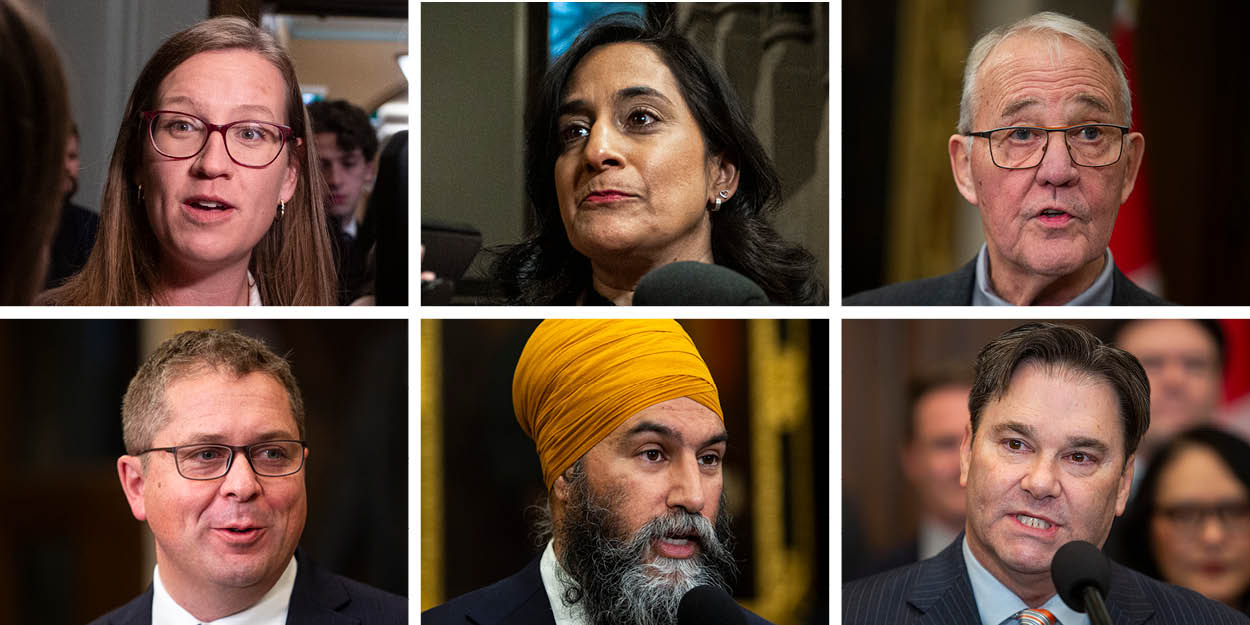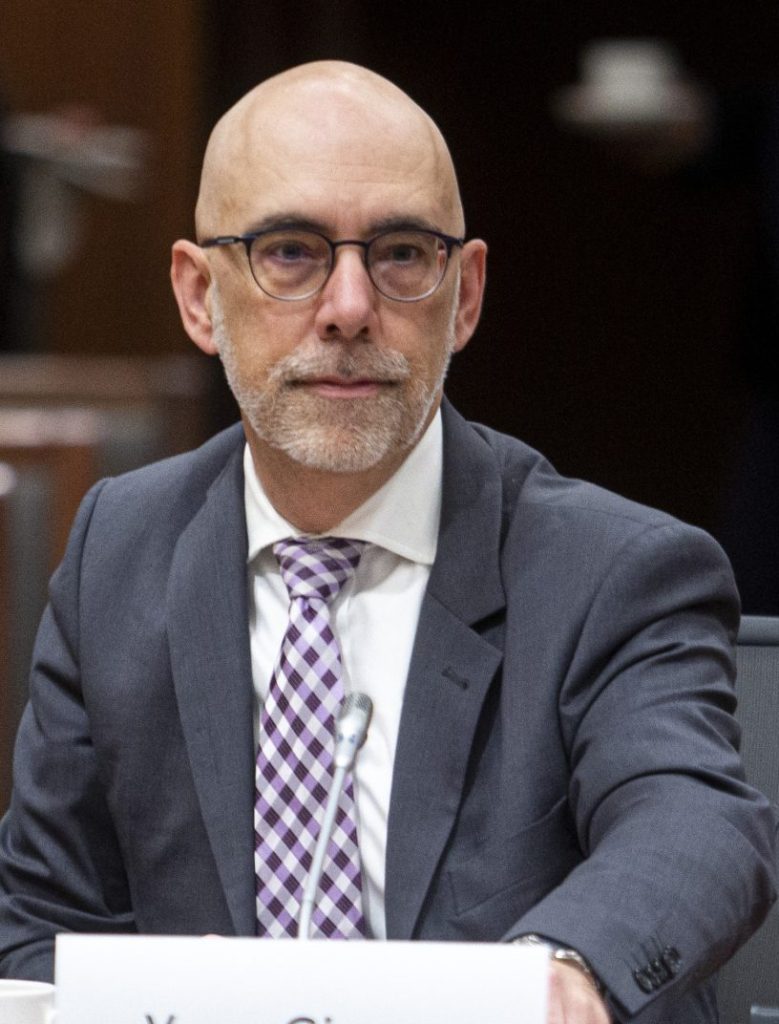House filibuster is putting money for military, dental care, and keeping the government lights on at risk

A funding bill to pay for government programs, the military, and to keep departments afloat could fall victim to the ongoing filibuster in the House of Commons.
Parliamentary approval of supplementary estimates (B), which includes $21.6-billion in proposed government spending across multiple federal organizations, is on the line if the stalemate in the House doesn’t end.
“Unfortunately, if there was a delay in the approval of those supplements, it could result in the lapsing of [Canadian Armed Forces] funding,” said Defence Minister Bill Blair (Scarborough Southwest, Ont.) in response to The Hill Times on Nov. 20.
“It’s one of the reasons I’m going before committee tomorrow, to share with my parliamentary colleagues the urgency of making sure we provide to the Canadian Armed Forces the resources they need to do their job. It’s our responsibility as government, but also to make sure that the money that Ukraine so urgently needs is made available to them,” said Blair.
Supplementary estimates are routinely tabled throughout the year, and outline additional and unforeseen government spending needs not included in the annual main estimates. Once tabled, a subsequent supply bill—or money bill—is introduced that will authorize the expenditures.
“That, basically, is the funds that keep the lights on in government, so to speak,” said NDP MP Don Davies (Vancouver Kingsway, B.C.).
“There’s a lot of really important things in there: funding for veterans, funding for the Air Force, funding to pay our civil servants. So I’m hoping to find a way forward to make sure that those funds flow,” he said.
Blame game
Regular legislative business in the Chamber has been stalled since Sept. 26. That was when House Speaker Greg Fergus (Hull–Aylmer, Que.) ruled that the government violated parliamentary privilege for not fulfilling a House order by handing over all documents related to the now-defunct Sustainable Development Technology Canada (SDTC).
Motions of privilege take precedent over other House business, meaning debate over supplementary estimates (B)’s related supply bill will be added to the growing backlog of legislative items that still need to be debated and voted upon.
“We need the House to function,” said Treasury Board President Anita Anand (Oakville, Ont.).
“We need the opposition to recognize the importance of the supplementary estimates on the functioning of this country as well as this government, and we urge the opposition to stop playing political games and get down to the business of serving Canadians,” said Anand, who tabled supplementary estimates (B) last week in the House.
But the Conservatives have said the ball is in the Liberals’ court when it comes to ending the filibuster.
“The Speaker has ruled that no other business can take place until this this order has been complied with. The Trudeau Liberals are choosing not to comply with this order. So it’s really up to them,” Conservative House Leader Andrew Scheer (Regina-Qu’Appelle, Sask.) told reporters on Nov. 19.
Government House Leader Karina Gould (Burlington, Ont.) has said that handing over all SDTC-related documents to the RCMP is “inappropriate” since it goes around due process and police independence.
On the nearly 29,000 documents they did provide to the House, Gould said “we’ve done so in a way that respects the rights of Canadians, and respects the Charter of Rights and Freedoms, and respects the separation of powers in this place.”
However, Scheer said the government is “picking and choosing which documents it hands over.”
Potential pause in the paralysis
While the Bloc Québécois aren’t looking to bail out the Liberals after failing to meet their demands on Old Age Security and protecting supply management, all eyes have been on the NDP to see if they will provide the government a lifeline during the filibuster.
However, the leader of the New Democrats hasn’t been forthcoming on whether he would rescue the Liberals from the parliamentary impasse.
“They’re seeing the Liberals and Conservatives play games in here. The Liberals could just disclose the documents. That’s what’s holding up this matter,” said NDP Leader Jagmeet Singh (Burnaby South, B.C.) to reporters on Nov. 20. “The Conservatives just want to hold this up because they want to play games. They don’t want anything to happen in the House. So I blame both of them, particularly at a time when people are hurting.”
While supporting a closure motion might not be in the cards for the NDP, the party is looking to pause the privilege motion debate to pass a temporary GST/HST relief bill.
Last week, the Liberals announced a two-month tax break on items like ready-made foods, restaurant meals, beer, wine, children’s toys, Christmas trees, and more. This temporary tax relief for the holidays will also come with a $250 cheque to Canadians who earned under $150,000 last year.
The NDP have claimed this tax holiday as a win for their party.
“We fought for this. We said ‘this is important’ and the Liberals informed us that they had caved to our demands,” said Singh to reporters on Nov. 21.
But the party said they’re only looking to pause the privilege motion debate just for a day in order to pass this upcoming temporary tax relief bill.
While the NDP are willing to make procedural moves to pass a two-month tax break, funding for another program that the New Democrats take credit for is still in limbo.
The national dental care program for low-income Canadians, launched last May, was one of the key pillars of the now-ended Liberal-NDP supply-and-confidence deal.
On top of CAF funding, the supplementary estimates (B), also has millions of dollars in proposed spending for key housing programs, the implementation of the National School Food Program, and more.
“Dental care is definitely at risk. Support for the Canadian Armed Forces—$3-billion. Support for Ukraine—and we just passed the thousand-day mark in Ukraine of the terrible, horrible, illegal war that Russia is waging—and we’re seeing that now more than ever they need support,” said Gould to reporters, explaining what could be impacted if the estimates aren’t passed.
“These are things that matter to Canadians and that are important for Canadians.”
But when asked if he would support the Liberals on a closure motion to end the filibuster in an effort to save dental care, Singh would not say.
“The Liberals are putting this at risk. The Liberals could just disclose some documents,” said Singh. “Why is Justin Trudeau putting all of this important work at risk just to cover themselves? Just to cover up a scandal? Provide transparency and things move forward.”
Even though multiple Liberal ministers have said money for dental care and pharmacare is at risk, Davies, the NDP’s finance critic, told The Hill Times he was not as worried since some of the funding for dental care was already passed in last year’s budget.
Keeping the lights on
When The Hill Times asked Gould if she had timelines for when the filibuster needs to end in order to pass the estimates, she said “the filibuster should end now. The Conservatives are being ridiculous.”
But it was Gould’s cabinet colleague Anand who provided a more pressing timeline.
“We are okay for the next three to four weeks, but we need to make sure that money flows to those smaller departments and then ultimately the larger departments which also fuel so much of the government’s and the country’s business,” said Anand.

However, Parliamentary Budget Officer Yves Giroux said the government does have some breathing room for the next while.
Giroux told The Hill Times’ Ian Campbell that departments have enough funds to keep operations going through the winter since their annual core funding was already approved in the 2024-2025 main estimates, which was passed last spring.
“If there’s no supps B ever, the government will not stop working,” Giroux said. “But there might be some programs here and there that will have to take it easy, slow down, or stop operations at some point.”
Things will get dicey for the government if the ongoing filibuster goes into the spring when paycheques to some public servants could dry up.
“It’s a bit like somebody exhausting or driving their bank account to zero, knowing they’ll get paid in two weeks, and if there’s a delay a couple of days, yeah, we’ll be in a bit of trouble,” said Giroux.
The Hill Times





 LICENSING
LICENSING PODCAST
PODCAST ALERTS
ALERTS













